
From the Deputy Assistant Secretary
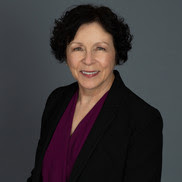
This month’s newsletter focuses on the importance of a diverse and strong educator workforce. From teachers to principals to other providers, educators are the lynchpin of a successful school experience for children and families. We especially salute classroom teachers who have navigated and innovated through the pandemic and continue to look for new and better ways to support their student’s academic and social emotional needs!
Each month this newsletter has featured one of our many technical assistance centers that support you, our grantees. But this month we want to share with you a way that we both recognize and learn from educators. Each year, the Department selects a new cohort for the School Ambassador Fellowship program. These gifted educators are selected from a pool of highly talented applicants to work with the Department for one year. The knowledge and experience they bring to the Department is invaluable in our day-to-day work as a federal agency. For example, their field experience can be very useful as we are crafting new discretionary grant programs or addressing current technical assistance needs in the field. We hope they find the experience just as rewarding and that it gives them a perspective on how the Department functions. If you or anyone you know is interested in applying to be a School Ambassador Fellow, applications are now open for the next cohort. Apply now for the 2022-2023 cohort using the School Ambassador Fellowship application on the School Ambassador Fellowship website. The application opened Oct. 15 and closes Jan. 14, 2022.
As noted above, this month focuses on resources for building and retaining a strong and diverse educator workforce. One resource in this newsletter is on Mentoring Practices and Retention across new teachers from a Regional Education Laboratory (REL), and another is a Comprehensive Center Network resource collection on building a strong and diverse educator workforce.
Our children need stability more than ever as we wind our way through this pandemic. Thank you, educators, for all you are doing to support children and families every day!
Ruth Ryder
|

Featured Program: School Ambassador Fellowships

Founded on the principles of partnership, collaboration and cooperation between the federal government and school based educators, the School Ambassador Fellowship is a one-year professional learning community program designed to improve educational outcomes for students by leveraging the expertise of school-based practitioners in the creation, evaluation, and dissemination of information around national education initiatives.
The fellowship supports the Department’s mission by leveraging the perspectives and expertise of outstanding educators to inform national education programs and initiatives.
Fellows enhance their expertise through a one-year community of practice where they participate in in-depth professional learning experiences and take advantage of opportunities to engage with educators from around the nation.
Fellows contribute to the broader education landscape through meaningful interaction with education stakeholders at the local, state, and national level.
To be eligible to apply for the School Ambassador Fellowship, you must:
- Currently be a teacher, administrator, or other school staff member (and anticipate being employed in this role during the next school year).
- Be employed by a traditional public, charter, private, virtual, military (DoDEA), or tribal (BIE) school that serves any grade, preschool through twelfth.
- Have at least five years of experience as a teacher, administrator, principal, or other school staff member, up to and including the current school year.
- Have daily meaningful interaction with students and educators in a school setting in your role.
School Ambassador Fellows show:
- A history of demonstrable and meaningful impact on student outcomes and school success.
- A record of leadership in their schools and communities.
- Strong written and oral communication, and presentation skills.
- A desire to share relevant insights from school and classroom experiences with those in positions to impact policy decisions.
- Support from their school communities and districts.
Apply now for the 2022-2023 cohort using the School Ambassador Fellowship application on the School Ambassador Fellowship website. The application opened Oct. 15 and closes Jan. 14, 2022. The 2022-2023 cohort will begin in the Fall of 2022.
|
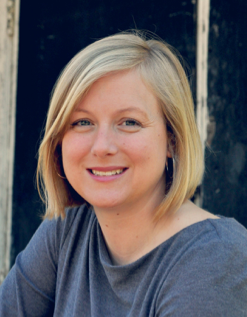
Meet Two School Ambassador Fellows
Meghan Everette
Meghan is an Elementary Mathematics Coach in Salt Lake City and the executive director of the Association for Supervision and Curricular Development (ASCD) Emerging Leader Alumni Affiliate. Meghan previously taught first, third, and fourth grades and is proud to have taught at George Hall, the National Turnaround Model School. Meghan was the 2013 Alabama Elementary Teacher of the Year and a 2015-2017 Hope Street Group National Teacher Fellow. She co-designed PoweredBy Teach to Lead Utah and spent six years as a blogger for Scholastic sharing classroom practices on everything from curriculum design to classroom libraries. She is the Utah ASCD president, has been a Digital Promise Micro-Credential Leader, and served on the CCSSO Teacher Recruitment and Retention Educator Steering Committee. Meghan co-authored “Forces of Influence: How Educators Can Leverage Relationships to Improve Practice” from ASCD. Meghan has master’s degrees in both Elementary Education and in Advertising and Public Relations. She is currently pursuing her doctorate in Teachers, Society, and Schools from the University of Florida and her dissertation is focusing on how mass communication theory can be applied to improve school communication.
How does your experience from the field inform your work at the Department?
- Meghan says that her experience with active and engaged educators in a variety of networks informs her work in the Department by always keeping teachers at the center of the discussion. Because Meghan is immersed in the daily life of schools, she brings the realities of relevant, timely concerns and solutions happening in classrooms to the forefront in conversations. It is easy to become disconnected from the realities of school or focus on high-level decisions, but Meghan’s experience and connection to educators drives her work.
What do you hope to gain or learn as an ambassador?
- Meghan indicates that her goal as an ambassador is to be a facilitator between the field and the Department, sharing the good work in both areas, and making connections between them. To do that, she hopes to learn about the various offices, programs, and structures at the Department, how and where it connects to the field, and how best to position teachers in that space. So far, she has enjoyed learning from and with educators around the country. Transparent practices and strong communication structures help schools learn from and with each other and Meghan gains new ideas from others, broadening her understanding of American education and giving her experience that can be shared back in current and future roles.
|
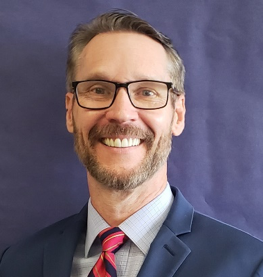
Joseph P. Masgai, Ed.D.
Joe Masgai is an award-winning elementary principal at Afton Elementary School, a 2019 National Blue Ribbon School for Closing the Achievement Gap, in Bucks County, Pennsylvania, where he has served as the instructional leader since 2009. He leads a high-energy school where creativity, problem-solving, and hands-on learning are embedded into each student’s daily experience. Prior to his 18 years in administration, Joe taught secondary English at public, private, and parochial schools at both the middle and secondary levels. As a result of both his teaching and administrative experiences, Joe possesses a comprehensive understanding of the K-12 continuum. Throughout his tenure at Afton, Joe has promoted collaborative strategic planning, personalized professional development, and a shared instructional improvement mindset consistently focused on the essentials of curriculum, instruction, and assessment. This shared vision, and a culture rooted in the practice of “linking arms,” has produced incredible student growth at Afton Elementary. Joe has built a school culture based upon community so that all students and their families, and especially at-risk students, feel safe, welcomed, and supported. Joe is also an adjunct professor at Lehigh University where he teaches courses on data-based decision-making and supervision & professional development. In addition to his teaching, Joe is focused on recruiting, mentoring, and inspiring the next generation of school leaders.
How does your experience from the field inform your work at the Department?
- Joe reveals that, as an elementary principal, he is accustomed to a fast-paced environment and multi-tasks throughout a typical school day. Living in this environment daily provided a seamless transition for Joe to adapt to ED climate. As a teacher, principal, and adjunct professor, Joe brings a K-12 and higher education perspective to ED backed by 31 years in the field. He is a firm believer in the power of collaborative leadership to transform education and increase student outcomes.
What do you hope to gain or learn as an ambassador?
- Joe says that, as a full-time fellow, he hopes to be fully immersed in the culture of the Department and to surround himself with education leaders who can provide him with a deeper, and national, understanding of education. Moreover, he hopes to be able to emulate the Department's mission statement to promote student achievement by fostering education excellence and ensuring equal access for all students.
|

Centers for Disease Control and Prevention Updates
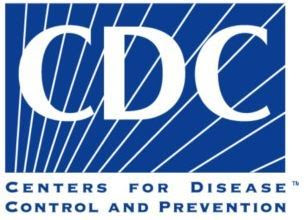
COVID-19 and School Reopening Resources
This toolkit for school administrators by the Centers for Disease Control and Prevention (CDC) includes resources for addressing COVID-19 cases in schools, close-contact decision trees, isolation FAQs, quarantine FAQs, a customizable case notification letter for K-12 parents and guardians of close contacts and non-close contacts, and a customizable isolation guidance letter.
Children's Storytime
In celebration of Native American Heritage Month, the Stephen B. Thacker CDC Library is partnering with the National Center for Injury Prevention and Control, CDC’s American Indian, Alaska Native, Native Hawaiian Coalition, and the Office of Equal Employment Opportunity to present readings from The Star Collection. The book’s illustrator and co-writer, Marisa Erven, of the Coquille Tribe of Oregon, will read The Friendship Makers and Stars that Connect Us, written for children in grades K-3. Register here to attend virtually on Nov. 17.
|

Technical Assistance Resources: Building and Retaining a Strong and Diverse Educator Workforce
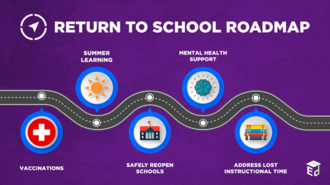
Return to School Roadmap and S.A.F.E. Education Response Team
The Biden Administration has developed a Return to School Roadmap to support educators and school leaders, parents, families, and communities and to lead students on a path to safe and supported in-person learning this fall. The goal of the Roadmap is to make sure every student has the support and opportunities they need to heal, learn, and grow in their classrooms and to create an environment where they belong and can thrive. Please visit the Roadmap and check out Roadmap videos on YouTube.
The Department also created the S.A.F.E. (Supporting America’s Families and Educators) Education Response Team to connect with communities that have low vaccine and high COVID-19 rates. This team of political and career staff supports the needs of local education agencies and communities to commit to the President’s Build Back Better agenda. The team convenes key groups to host conversations to hear the experiences of those on the ground, identify best practices and challenges, and serve as liaisons to the Department. In October, they conducted roundtables with youth, teachers, administrators, parents, higher education leaders and more in Raleigh, Fayetteville, and Charlotte, North Carolina, as well as in Atlanta.
|
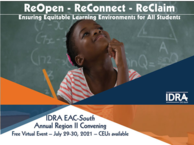
Ensuring Equitable Learning Environments for All Students
IDRA EAC-South (EAC Region II) recently held its annual convening, ReOpen, ReConnect, ReClaim: Ensuring Equitable Learning Environments for All Students. The event provided school teams with research-based practices, frameworks, and recommendations to provide a common language to address equity, student achievement, social and emotional learning, and trauma responsive education. Event resources can be accessed by joining the IDRA Equity Connection Community of Practice.
|
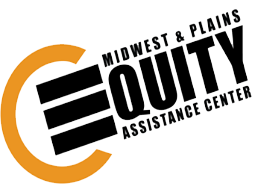
Critical <
![]()
About the Author
Ruth Ryder is the Deputy Assistant Secretary for the Office of Office of State Grant and Program Support in the Office of Elementary and Secondary Education (OESE) at the U.S. Department of Education. In this role, Ms. Ryder oversees a broad range of management, policy, and program functions related to formula and discretionary grant programs under the Elementary and Secondary Education Act, as amended by the Every Student Succeeds Act (ESEA). Ms. Ryder was previously the deputy director of the Office of Special Education Programs in the Office of Special Education and Rehabilitative Services, which she joined in 1988. Prior to joining the Department, Ms. Ryder was a program administrator in a Washington state school district. There she had responsibility for the Elementary and Secondary Education Act Title 1 and Title II programs, state-remediation, gifted education, outcome-based education, and state- and district-wide testing programs. Ms. Ryder has a bachelor’s degree in psychology and elementary education and a master’s degree in special education.
Read next
News From Others
Stakeholder Groups Urge Caution Regarding AI Use
Legislation
House Subcommittee Moves FY 2026 Labor-HHS-ED Bill Forward
USED & White House
DOJ Releases Guidance on DEI
| | |

